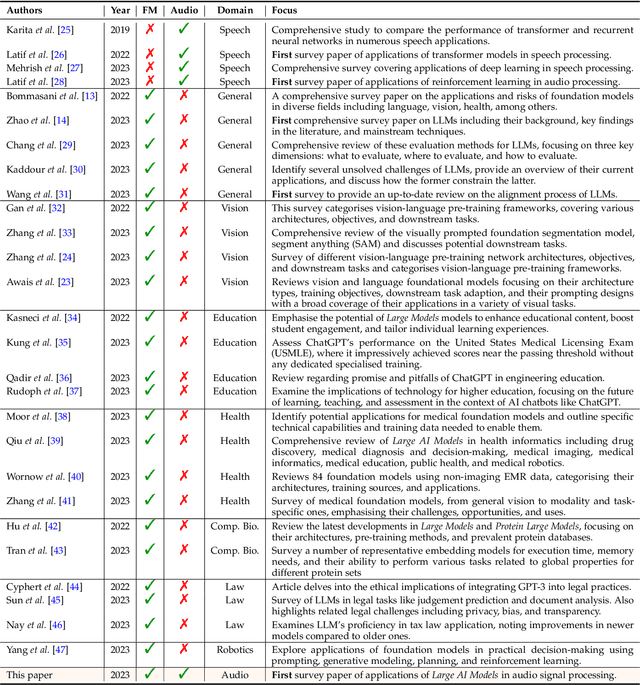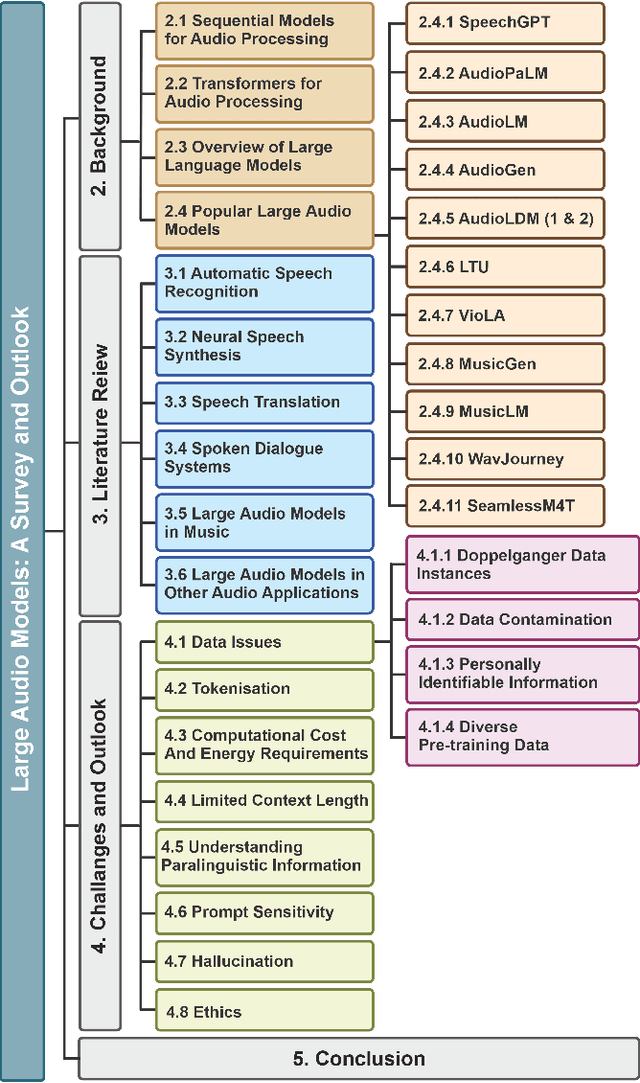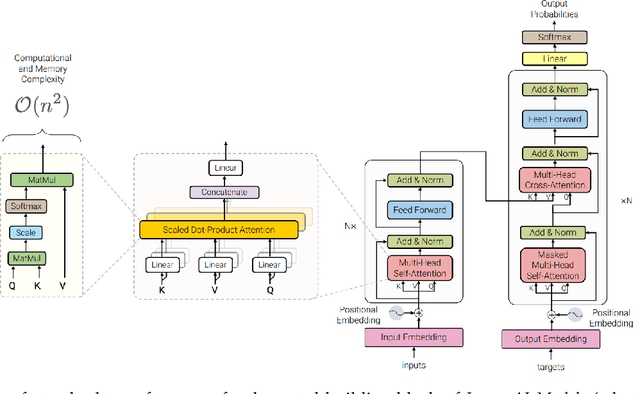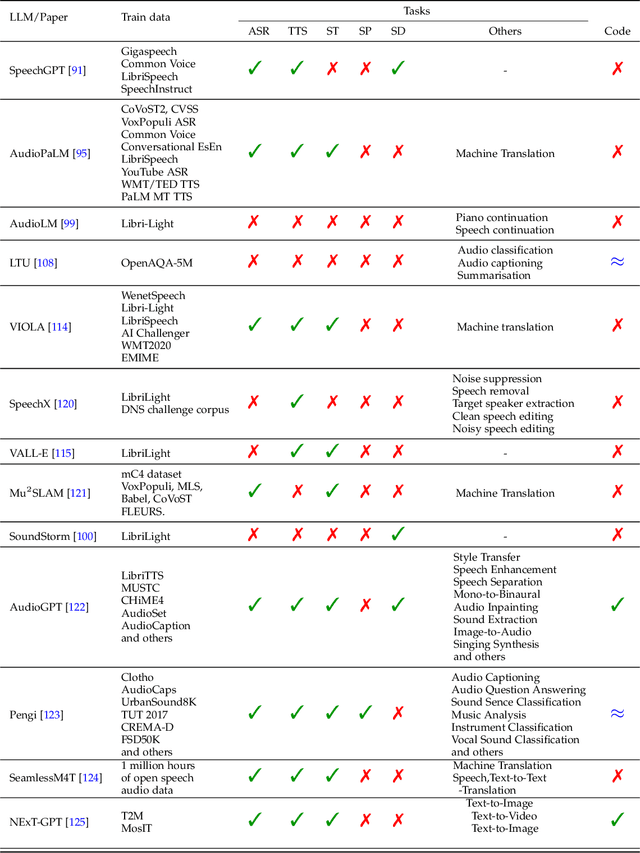Moazzam Shoukat
Sparks of Large Audio Models: A Survey and Outlook
Sep 03, 2023



Abstract:This survey paper provides a comprehensive overview of the recent advancements and challenges in applying large language models to the field of audio signal processing. Audio processing, with its diverse signal representations and a wide range of sources--from human voices to musical instruments and environmental sounds--poses challenges distinct from those found in traditional Natural Language Processing scenarios. Nevertheless, \textit{Large Audio Models}, epitomized by transformer-based architectures, have shown marked efficacy in this sphere. By leveraging massive amount of data, these models have demonstrated prowess in a variety of audio tasks, spanning from Automatic Speech Recognition and Text-To-Speech to Music Generation, among others. Notably, recently these Foundational Audio Models, like SeamlessM4T, have started showing abilities to act as universal translators, supporting multiple speech tasks for up to 100 languages without any reliance on separate task-specific systems. This paper presents an in-depth analysis of state-of-the-art methodologies regarding \textit{Foundational Large Audio Models}, their performance benchmarks, and their applicability to real-world scenarios. We also highlight current limitations and provide insights into potential future research directions in the realm of \textit{Large Audio Models} with the intent to spark further discussion, thereby fostering innovation in the next generation of audio-processing systems. Furthermore, to cope with the rapid development in this area, we will consistently update the relevant repository with relevant recent articles and their open-source implementations at https://github.com/EmulationAI/awesome-large-audio-models.
Transformers in Speech Processing: A Survey
Mar 21, 2023



Abstract:The remarkable success of transformers in the field of natural language processing has sparked the interest of the speech-processing community, leading to an exploration of their potential for modeling long-range dependencies within speech sequences. Recently, transformers have gained prominence across various speech-related domains, including automatic speech recognition, speech synthesis, speech translation, speech para-linguistics, speech enhancement, spoken dialogue systems, and numerous multimodal applications. In this paper, we present a comprehensive survey that aims to bridge research studies from diverse subfields within speech technology. By consolidating findings from across the speech technology landscape, we provide a valuable resource for researchers interested in harnessing the power of transformers to advance the field. We identify the challenges encountered by transformers in speech processing while also offering insights into potential solutions to address these issues.
 Add to Chrome
Add to Chrome Add to Firefox
Add to Firefox Add to Edge
Add to Edge